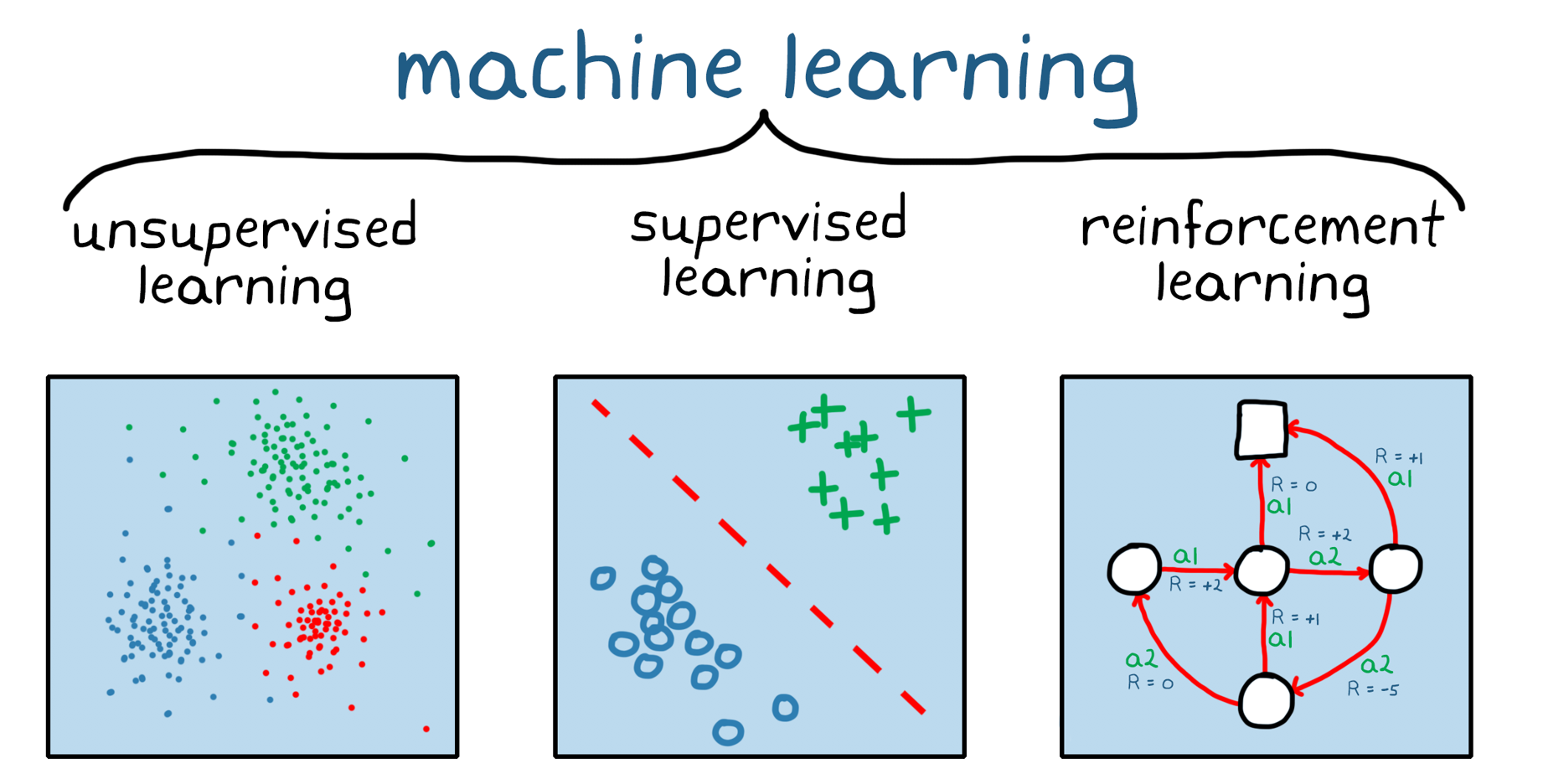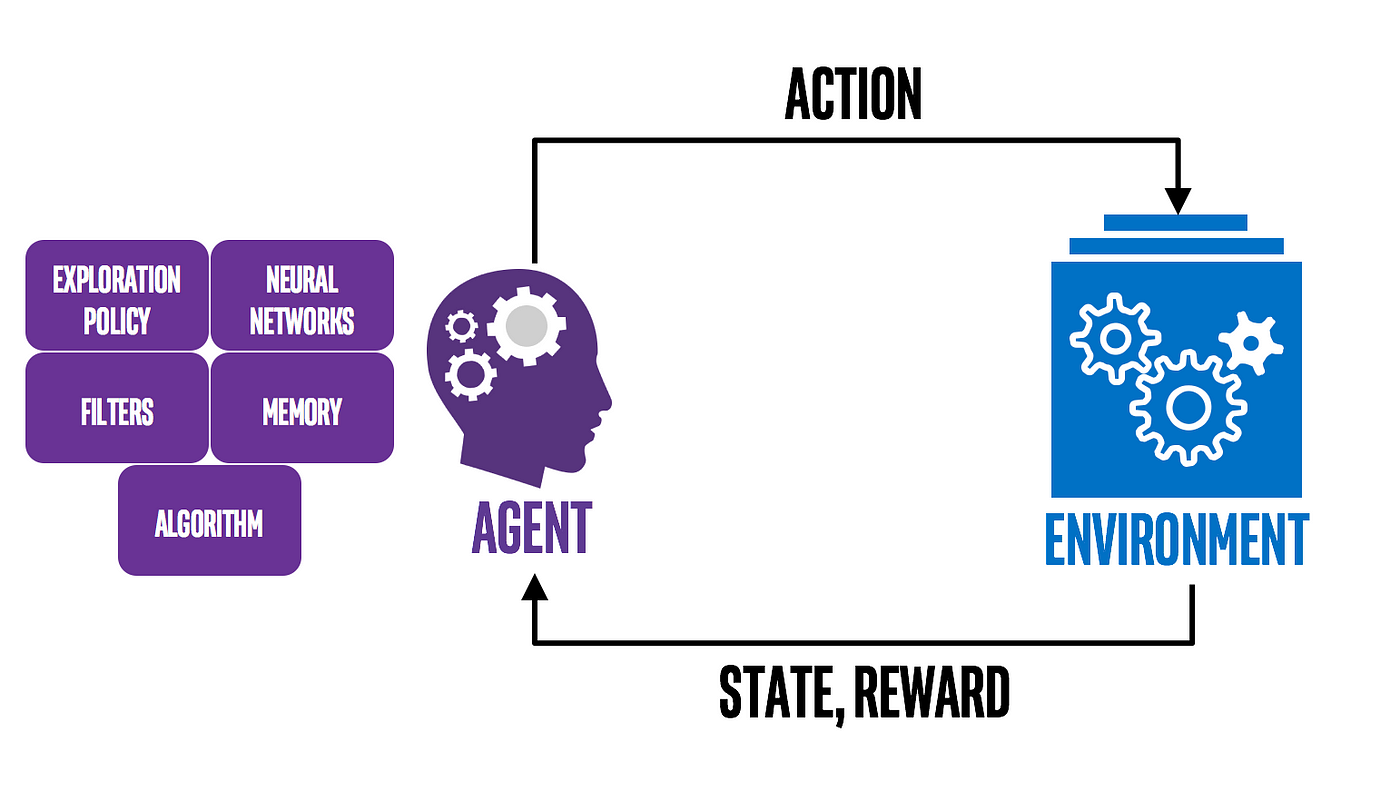Reinforcement learning
Reinforcement learning
Reinforcement learning is a type of machine learning that focuses on training algorithms to make decisions in a dynamic environment. Unlike supervised learning, in which the algorithm is given the correct output for each example in the training data, reinforcement learning algorithms must learn through trial and error, receiving feedback in the form of rewards or punishments for their actions.
One of the key advantages of reinforcement learning is that it allows algorithms to learn from their experiences in a way that is similar to the way humans learn. For example, a reinforcement learning algorithm might learn to play a video game by trying different actions and receiving rewards for successful actions and punishments for unsuccessful ones. Over time, the algorithm learns to make better decisions and improve its performance on the task.
There are several different types of reinforcement learning algorithms, including value-based methods, policy-based methods, and actor-critic methods. Value-based methods use a value function to estimate the expected rewards of different actions, while policy-based methods directly learn a policy that maps states to actions. Actor-critic methods combine elements of both value-based and policy-based methods.
Reinforcement learning algorithms are typically trained on a simulated environment, allowing the algorithm to try many different actions and learn from the consequences. The training process can be time-consuming and computationally intensive, but it allows the algorithm to learn complex behaviors that would be difficult to explicitly program.
One of the challenges of reinforcement learning is that it can be difficult to evaluate the performance of the algorithm. Unlike supervised learning, in which the algorithm is given the correct output for each example in the training data, it is not always clear what the correct action should be in a reinforcement learning scenario. This can make it difficult to compare different algorithms and evaluate their performance.
Despite these challenges, reinforcement learning has achieved impressive results in a wide range of applications, from playing video games to controlling robots. As the field of reinforcement learning continues to evolve, it is likely that it will play an increasingly important role in a wide range of industries and applications.
Reinforcement learning is a type of machine learning that focuses on training algorithms to make decisions in a dynamic environment.
The concept of reinforcement learning was first introduced by psychologist B.F. Skinner in the 1940s.
In 1997, a reinforcement learning algorithm called TD-Gammon defeated the world champion of the board game backgammon.
In 2011, a reinforcement learning algorithm called MarI/O learned to play Super Mario World by watching YouTube videos and receiving rewards for successful actions.
In 2016, a reinforcement learning algorithm called AlphaGo defeated the world champion of the board game Go, a game considered to be significantly more complex than chess.
Reinforcement learning is now being used in a wide range of applications, including video games, robotics, and finance.
Some experts believe that reinforcement learning has the potential to revolutionize the way we interact with the world around us, allowing machines to learn and adapt in ways that were previously unimaginable.
Critics of reinforcement learning point to potential ethical concerns, such as the potential for algorithms to learn harmful or unethical behaviors.
The future of reinforcement learning is likely to involve the development of more advanced algorithms and the integration of reinforcement learning into a wider range of applications.
Reinforcement learning is a subfield of machine learning that focuses on training algorithms to make decisions in a dynamic environment.
Many universities and educational institutions offer courses and programs in reinforcement learning, often as part of a larger computer science or data science curriculum.
Some common courses in reinforcement learning include:
Introduction to Reinforcement Learning
Markov Decision Processes
Dynamic Programming
Monte Carlo Methods
Temporal Difference Learning
In addition to traditional classroom courses, there are also many online courses and tutorials available that cover the basics of reinforcement learning.
Students interested in pursuing a career in reinforcement learning may also benefit from participating in research projects or internships in the field.





Comments
Post a Comment
If you have any doubts. Please let me know.